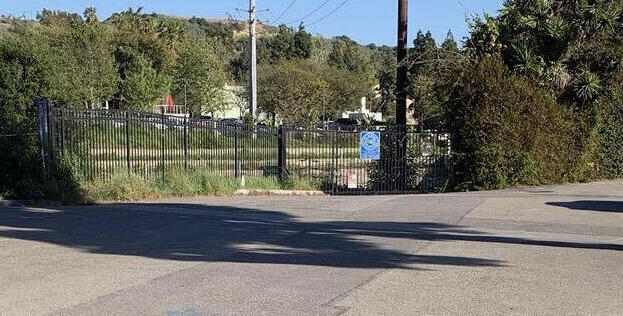
If anyone does not fully appreciate how difficult our civic dialogue has become, the city council meeting on the Jackson Avenue Gate was a perfect, if painful, example. The people arguing for access held some very simple ideas – more access would allow for more use; more use is good. The people arguing against access held that any use at all was imperfect. Anything less than perfect was unacceptable.
Misconceptions fed a stream of objections that still lacked the momentum to wash away the decision. The Jackson Avenue gate, after a legislative process of about five years, will be open for access to the bike path.
I’ve been living next to the bike path for decades; not on Jackson Avenue. From where I sit at my desk, I can see the colorful helmets and bright vests of many bike riders. I’ve been one of those riders, often. The gate that I have to use to access the bike path is on the other side of a busy major street. It is less than ideal. The nearest crosswalk is several blocks away, the nearest traffic signal is about a quarter of a mile up the road. If I had a better access gate, I’d use it.
The arguments to keep the Jackson Avenue gate locked surprised me in how closely they reflected the New York Times essay by Kevin Kruse “What Does a Traffic Jam in Atlanta Have to Do with Segregation?” The chain of ideas that was repeated at the city council meeting over and over again – that homeless people live along the bike path (true) – that homeless people are violent criminals (not true) – and that opening access to the bike path (which is already open at other gates all the way along) will create an inevitable surge of crime in the neighborhood along Jackson Avenue.
The essay “What Does a Traffic Jam in Atlanta…” goes into historic detail as to how the attempt to create public transit in Atlanta was severely hampered by the concepts that giving the poorer minority neighborhoods in Atlanta public transit access to the wealthier neighborhoods in Atlanta would lead to a a massive increase in crime. Using the same set of assumptions outlined above – That minorities had less wealth (true) and that being able to travel to wealthier neighborhoods would encourage them to commit crimes against the wealthy (not true.)
The result of this is that it’s just about impossible to get anywhere in Atlanta. Not unlike Los Angeles, the traffic is ridiculous. And we are setting the planet on fire.
Now, I realize I have the perspective of a lifelong Angeleno who drives a car, but I have never imagined that anyone committing a crime was going to use a bike as a getaway vehicle, or – in the Atlanta scenario – sit down at a bus stop and wait for the next bus. To me, that’s a comedy scene. Someone on a BMX bike carrying a 72 inch television. Cue the laugh track.
What grieves me is the insistence that anyone who has less money is therefore obviously criminal. Anyone who is homeless is criminal. Anyone who is a minority is criminal. It’s not true. Deciding that an entire group of people is bad, wrong, or a threat is simply paranoia. Then it’s a mental health problem. You have decided to give away your sense of peace in order to live in fear.
The decision on the gate was also an example of using public access for public good.
When I lived in Venice, I had a neighbor who was sure that the street in front of their house was actually theirs. Park your car, and you would find a nasty note on your windshield in the morning. Despite the fact that this was a neighborhood starved for parking – most houses did not have driveways or garages, AND we had street sweeping twice a week, which meant one side was off limits for 4 hours – this person was adamant that anyone parking in front of their property was somehow committing an offense.
Trying to explain to them that they did not, in fact, own the street, was not a dialogue that they were open to. Despite many outraged calls to the authorities, no tickets were ever issued, no vehicles were ever towed. Because public space is public.
Public space, and transit, are all resources we need to share. Being able to listen is as important to dialogue as being able to speak. In a city filled with educated, articulate people, why do we fall into this unproductive paranoia and prejudice? Is it the down side of human nature, or just old, bad habits?
Opening up a dialogue that can lead to progress requires that both sides be willing to listen and reflect. Waiting for someone else to stop talking so you can say the thing you had already decided you were going to say bypasses the listening process, and leaves things stuck.
Opening a fence might be a challenge. Opening a gate does not need to be; this is what gates are designed to do.
Judith Martin-Straw


Bemoaning your opposition’s lack of civility and intelligent, open-minded discourse by characterizing their arguments as paranoid, inherently racist, disdainful of the poor, and lacking the brilliant brevity of your side’s “access and use good” puts it smack dab at the Venn diagram confluence of “adorable,” “insufferable,” and “gaping sinkhole where self-awareness should be.”
Love this Judith! Thank you.